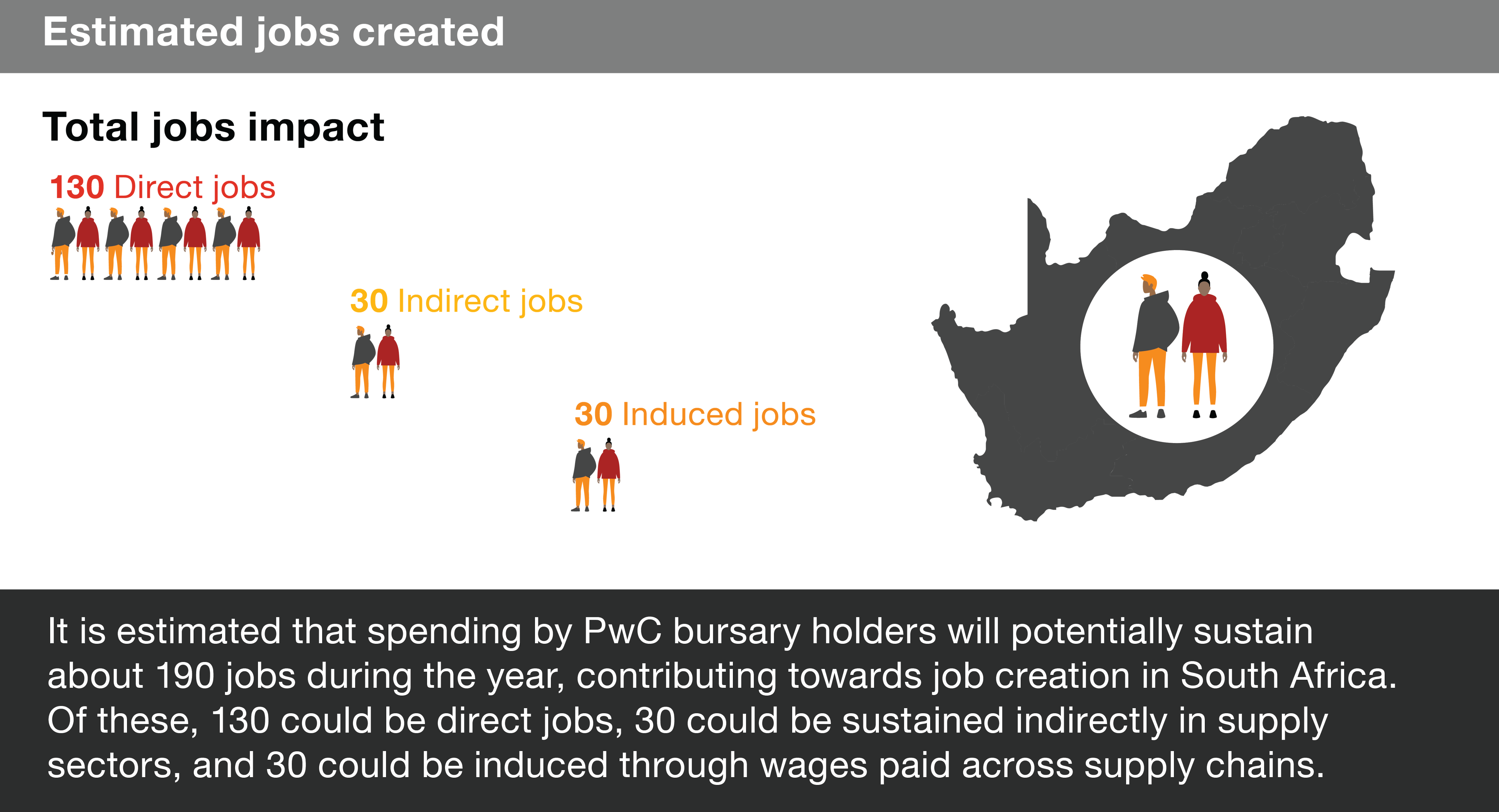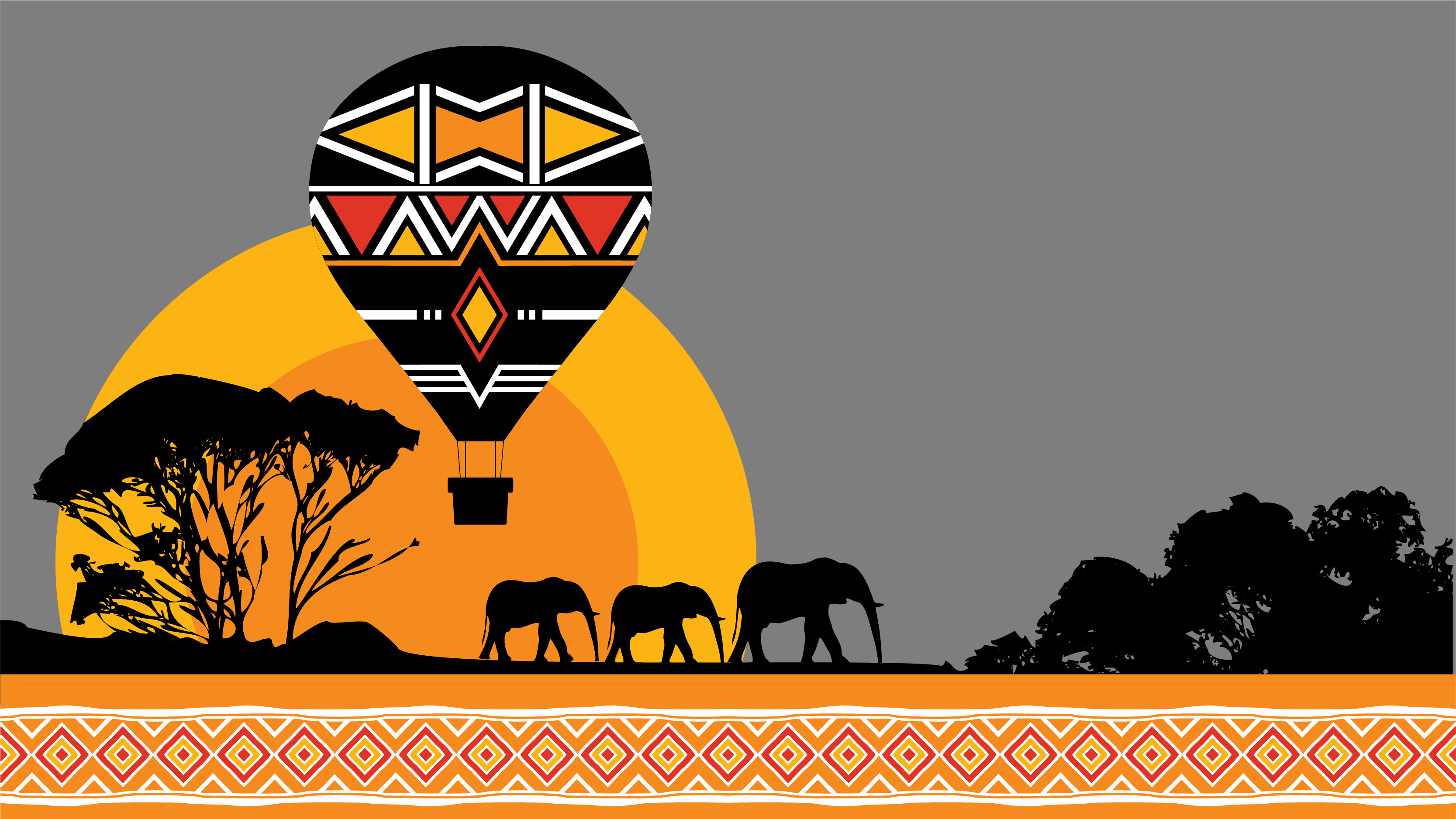How we measure impact
At PwC, we believe in rigorously evaluating our societal impact to ensure we‘re driving meaningful, positive change. Our approach goes beyond traditional metrics, delving deep into the economic and social fabric of the communities where we operate.
We employ a comprehensive analysis framework that encompasses:
These analytical tools give us actionable insights into how our presence translates into tangible societal improvements. This data-driven approach not only validates our efforts but also guides our future strategies, ensuring we continually enhance our role as a catalyst for positive societal transformation.

Our methodology
By evaluating the economic impact of PwC’s initiatives and mapping the pathways of selected skills development and other programmes, we can better understand how our operations and investments translate into tangible benefits like job creation and community empowerment. This approach aligns with our commitment to sustainable development and positive societal change, reinforcing our role as a responsible corporate citizen.




To effectively measure and understand the impact of our initiatives, we employ a comprehensive methodology that tracks the progression from resources invested to the ultimate changes in the lives of our target population. This approach involves several stages: inputs, activities, outputs, outcomes and impacts.





The Economic Impact Assessment (EIA) methodology uses the Social Accounting Matrix (SAM) framework and is guided by Global Reporting Initiative (GRI) standards.

Economic linkages illustrate a given expenditure’s direct, indirect, and induced effects. The multiplier quantifies these knock-on effects, with the total impact being the sum of direct, indirect and induced impacts.

Impact pathways
PwC South Africa’s operational impact
We measured the economic impact of our operations as part of our societal purpose of building trust and delivering sustained outcomes. We show PwC’s estimated contribution through our day-to-day operations and their knock-on effects.


South African households are estimated to have received job opportunities, resulting in an increased income of around R8.8 billion.
Total government revenue is also estimated to have increased.


PwC contributed an estimated R2.6 billion through induced tax revenue contributions.

The results of the EIA show that PwC, through its operational expenditure, contributed positively to the South African economy.
This included contributions through greater economic growth and employment levels, reduced poverty, reduced income inequality, and increased public services and infrastructure funding.






PwC South Africa bursaries
PwC bursary holders who started their articles in 2024 will earn R32.1 million in salaries by the end of the year. During the year, they will spend these salaries on various goods and services, contributing to the South African economy.


Spending by PwC bursary holders will positively impact the household incomes of other individuals in South Africa. Simultaneously, government tax revenue is expected to increase because of increased tax revenue during 2024.


Youth Start programme (eduCate)
The Youth Start programme (eduCate) aims to improve education outcomes in South Africa, particularly in STEM (science, technology, engineering, and mathematics) fields. The programme involves multiple stakeholders, including Primestars, PwC, students, teachers, schools, government departments and numerous other organisations.
Some of the key estimated outcomes and impacts identified through our assessment include:

Outcomes |
Impacts |
|
Improved education:
|
Economic growth:
|
|
Enhanced support for students:
|
Social mobility:
|
|
Improved STEM performance:
|
Community upliftment:
|
|
Contribution to national goals:
|
||
Enhanced brand profile:
|
PwC Mauritius M-Kids Aquaponics
The PwC Mauritius M-Kids Aquaponics project is designed to empower vulnerable children in Port Louis by establishing an aquaponic garden. This initiative aims to provide sustainable agricultural skills, improve community health, and promote environmental awareness. The project involves multiple stakeholders, including PwC, M-Kids, youth participants, surrounding communities and suppliers.
Some of the key estimated outcomes and impacts identified through our assessment include:

Outcomes |
Impacts |
|
Enhance employee skills:
|
Economic
|
|
Empowerment of vulnerable children:
|
Social:
|
|
Agricultural skills development:
|
Environmental:
|
|
Community health improvement:
|
PwC Nigeria Chess4Change
The PwC Nigeria Chess4Change project aims to empower students by introducing them to chess, providing mentorship and enhancing their academic and leadership skills. The initiative involves multiple stakeholders, including PwC, MediaVision Limited, mentors, students, schools, and various educational and sports authorities.
Some of the key estimated outcomes and impacts identified through our assessment include:

Outcomes |
Impacts |
CSI responsibility:
|
Economic:
|
Programme management:
|
Social:
|
Participant fulfilment:
|
Educational:
|
Academic and leadership development:
|
|
Sports participation:
|
Contact us

Dion Shango
Territory Senior Partner for PwC’s East, West and South Market regions in Africa, PwC South Africa
Tel: +27 (0) 11 797 4166

Shirley Machaba
Regional Senior Partner, PwC South Market Area, PwC South Africa
Tel: +27 (0) 11 797 5851

Peter Ngahu
Regional Senior Partner, PwC East Market Area, PwC Kenya
Tel: +254 (0) 20 285 5090


Verena Koobair
Head of Communications and Societal Purpose Firm Pillar Lead, PwC South Africa
Tel: +27 (0) 11 797 4873






















